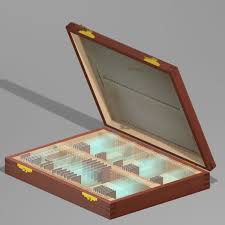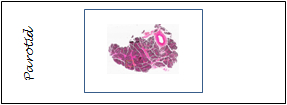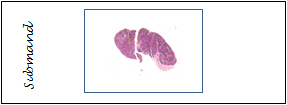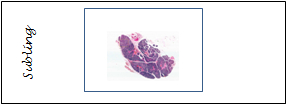Salivary Glands
Salivary glands are compound, tubulo-acinar structures, that is they contain a mixture of tissue types, the primary functional units being a combination of tubules and globe-like secretory units called acini. The cells in the acini are merocrine in nature, that is they secrete their products via secretory granules – the cell is undamaged by the process. The glands as a whole contain functional areas (the parenchyma) called lobules surrounded by a connective tissue capsule (the stroma). The connective tissue contains the larger secretory duct system and the capillary supply
Salivary glands can produce two types of secretion – a watery or ‘serous’ secretion or a more viscous ‘mucous’ secretion (or a mixture of both). This can constitute a simple form of classification, i.e. serous, mucous or mixed. The glands can also be classified according to their size or position.
The classification according to size divides the glands into ‘major’ or ‘minor’. The major glands are essentially discrete structures which are completely or largely enclosed by a connective tissue capsule and can be isolated as distinct structure. The three major glands (found in pairs) are the parotid, submandibular and the sublingual. The minor glands are found throughout the oral mucosa and are small, less discrete structures often found embedded within the muscle tissue of areas such as the lip or soft palate.
The major glands can be either serous or mixed in nature. The parotid is essentially 100% serous. The submandibular is mixed, with the ratio of serous to mucous often quoted at approximately 10:1. The sublingual on the other hand is mixed with the opposite ratio, i.e. 10:1 mucous to serous. The minor glands are essentially 100% mucous with one notable exception. In the dorsum of the tongue beneath the circum-vallate papillae, the glands of Von Ebner are minor serous producing glands.
 There are 3 slides, one each
for the major salivary glands:
There are 3 slides, one each
for the major salivary glands:
Slide Box
1. Parotid
3. Sublingual
The minor glands can be found in slides of regions of the oral mucosa. As stated above, the majority are mucous glands such as that found in the:
Serous minor glands are to be found beneath the circumvallate papillae of:
Dorsum of the tongue (area 2) - the glands of Von Ebner


